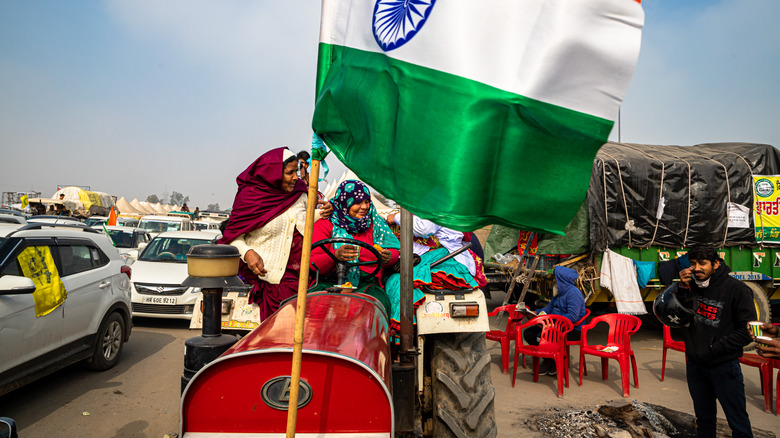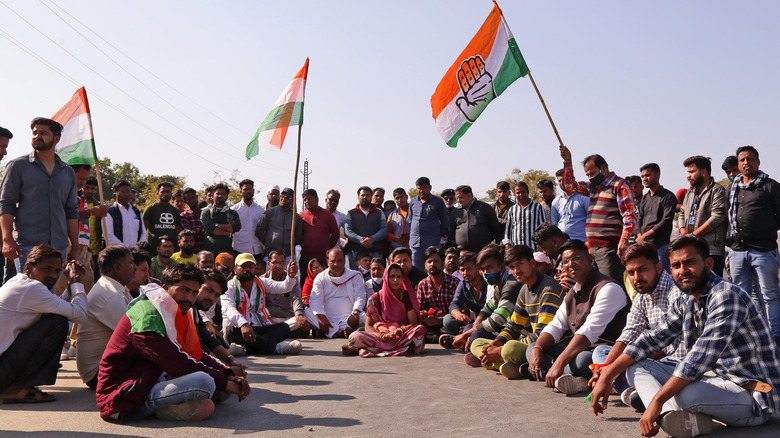Why Farmer Protests In India Are Turning Violent
Thousands of farmers have gathered in New Delhi to protest against Prime Minister Narendra Modi. As Reuters reports, farmers tried to break through barriers with their flags and banners while security around India's capital tightened. This comes less than a year after the government stepped back from implementing the agricultural deregulation laws that sparked a massive wave of sustained protests. Previously, Indian farmers sold their crops to the government. Many worried that deregulation would leave small farmers at the mercy of big business.
Abhimanyu Singh Kohar, a member of and organizer for the initial protest, which began in 2020 and continued for one year, explained to Outlook India that even though the central government backed down on the issues of the agricultural laws and later acceded to the protest's other demands, nothing had been done. "So here we are again to discuss and raise our demands and chalk out future strategy of the movement," Kohar said.
The Indian Express relayed claims made by Rakesh Tikait, the national spokesperson for the farmers' organization Bharatiya Kisan Union (BKU), noting he had been arrested on his way to the capital. "[The government] can't suppress the voice of the farmers," Tikait tweeted. "This arrest will bring a new revolution. This struggle will continue till our last breath."
These protests are a continuation
You cannot view this day of protest as separate from the previous year-long protest that resulted in the farmers' victory. In July, the BBC covered how farmers were debating their next move. Farmers did not believe that the government would withdraw charges. Moreover, the government had yet to announce any progress towards implementing the second major demand of the protestors: A guaranteed minimum support price or MSP (MSP is a government controlled floor price for goods).
Even before the month was out, farmers held another protest (per The Tribune). They blamed the government for driving farmers to kill themselves by trapping them in debt. They also restated the need for the government to institute MSP on all 23 crops covered under the safety-net framework. The Statesman writes that another protest occurred on July 31 when farmers in Punjab blocked a railway track. Again, they asked for MSP and called out the government for not following through on its promises.
The importance of these economic protections was explained to CNN by the economist Devinder Sharma. The issue is that even though 58% of Indians make their livelihoods off of farming, most farmers don't have enough land to profit. "When farmers plant their seeds to grow crops, they are already making a loss," Sharma said. "They sacrificed their income for the sake of consumers, and it's the small farmers who have been exploited the most."
That desperation has given fuel to a movement.

